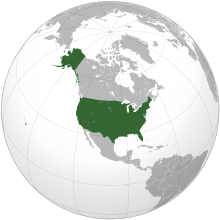Iran Viewpoint: Republicans’ Political Trap For Obama – OpEd
By Iran Review
By Mohammad Farhad Koleini
The United States Republican presidential candidate, Mitt Romney, has targeted the keyword of his Democrat rival’s election campaign by offering a pragmatic critique of their strategy noting that the existing United States strategy which is based on “hope” cannot be a real strategy. By doing this, he is trying to force Obama accept the main coordinates of the foreign policy approach of his Republican predecessor, George W. Bush, and practically exonerate the Republicans in the notorious case of their unauthorized interventions in the Middle East. Romney has announced that he will declare his final and main positions on the foreign policy approaches of the Republicans in an address to Virginia Military Academy in the near future. He is also supposed to take part in another debate with his Democrat rival, the incumbent President Barack Obama, in the last third of October which would exclusively focus on the United Nations foreign policy. In his first presidential debate with Obama, which focused on the United States economic issues, Romney succeeded to win the debate and improve his position in the American public opinion. In the next round of the debate, he is determined to repeat that success in the area of the US foreign policy. The Republican team has been closely studying the reasons for the change in the two candidates’ positions in the election debates. Having learned a lesson from victory of the Republican president, Ronald Reagan, against his Democrat contestant, Jimmy Carter, at a time that Republicans fared worse in opinion polls, they have succeeded to change their standing through public debates and now are getting ready for another possible victory.

The main election tactic used by the Republicans under the present circumstances is to provide grounds and continue expansion of their positions through mass media until a new face to face debate is held with Obama. In this way, and by taking advantage of grounds they have laid before the debate, they will enjoy necessary capacities for their argument to be accepted by the American public opinion. Mitt Romney recently announced that it is time for the United States to change its policy in the Middle East. After taking the incumbent administration to task, he called for immediate change in the United States’ policy in three key areas in the Middle East. He believes that the United States should change the weapons balance in the Syria equation and get out of its current passive position in that Arab country by providing tanks, fighter planes and helicopters to the Syrian opposition. He also believes that due to changes in the behavior of the new Egyptian government, the United States should likewise changes its aid to Cairo. The change in US aid to Egypt has been proposed by Romney in a bid to make the new government of President Mohamed Morsi change its behavior. Romney, due to his affiliation to the Zionist regime in Tel Aviv, has reiterated the need to impose further sanctions on Iran and escalate political pressure on Tehran.
By noting in his pragmatic analysis of the US strategy in the Middle East that “hope” cannot be a strategy, Romney practically targeted the keyword of Democrats’ election campaign. By doing so, he is actually trying to make Obama accept the foreign policy coordinates of his Republican predecessor George W. Bush and salvage the Republicans in the notorious case of US interventions in the Middle East countries. By trying to get Obama more involved in the Middle East crises, he is trying to prevent him from criticizing the foreign policy approaches of the Republicans. This is the most serious media trap that Romney has spread for Obama.
Obama started his presidency through the interactive literature that he introduced during his public address in Cairo. The address was an effort to recover the US international image – which had been marred through previous invasions of Iraq and Afghanistan – by parallel political and media efforts. Obama, as such, was also showing that he was determined to follow a totally different approach than his Republican predecessor. However, after the emergence of the sweeping wave of the Islamic Awakening in the Middle East region, Obama who had failed to have a correct grasp of the reality of these developments, opted for military intervention in Libya and tried to change the new balance in the Middle East to the detriment of the focal point of those developments. Now his is practically treading the same path in his foreign policy as the Republicans did. As a result, his Republican rivals have decided to totally attune his policies to their own, so that, even if he is reelected as US president, he would continue to play in their court.
As a result of the above trend, professional politicians in the United States are now very concerned. Since US presidential candidates have focused their efforts on criticizing the current foreign policy approach of the United States as a result of which the national interests of the United States have practically become a plaything for the Republicans who are bent on teaching lessons to Obama, the main risk is a new change of course among professional officials who formulate Washington’s foreign policy. This may further tarnish the overall image of the US foreign policy in the public opinion and, therefore, reduce their maneuvering power for pursuing the United States’ new foreign policy goals.
Mohammad Farhad Koleini
Former Iranian Ambassador to Armenia & Expert on Strategic Issues
